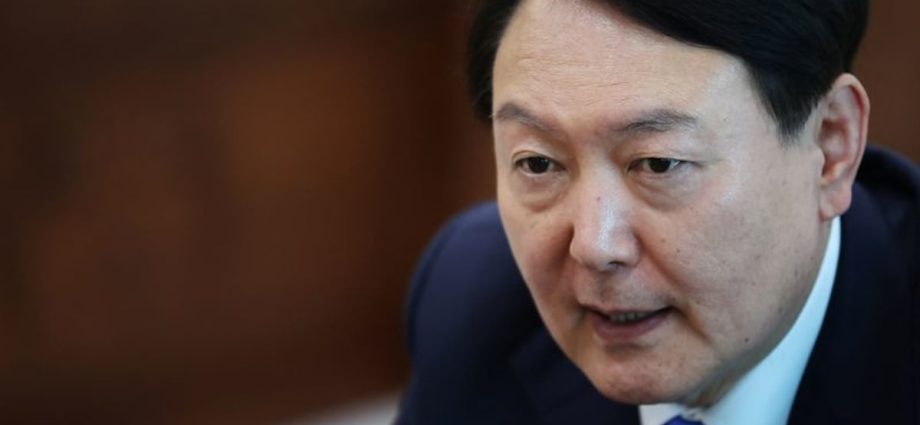
Yoon said he is open to peace talks but opposes any “surprise” summit with North Korean leader Kim Jong Un to “show off” to voters out of domestic political interests.
He criticised former governments’ sudden, uninformed announcements of inter-Korean talks, which he said did little to build trust.
Yoon’s predecessor, Moon Jae-in, staked his legacy on improving inter-Korean ties and helped arrange a historic meeting between Kim and then US President Donald Trump in 2018.
Three summits Kim and Moon held in 2018 promised peace and reconciliation but relations have soured and the North conducted unprecedented numbers of weapons tests following a second failed summit between Kim and Trump.
“They used those talks ahead of elections, but ultimately inter-Korean relations were always back to square one,” Yoon said.
Humanitarian aid could open the door for dialogue, and both sides could build on those discussions to move onto more sensitive topics including economy and military, he said.
Yoon’s administration proposed COVID-19 relief last year and unveiled plans to provide economic aid in return for nuclear disarmament, but Pyongyang flatly rejected the offers.
“If previous talks had proceeded step by step … before the leaders met, the inter-Korean relationship would have developed steadily, though at a snail’s pace,” Yoon said.
On Sino-US rivalry, Yoon has trodden cautiously, with China being South Korea’s largest trade partner, but he has been more vocal over tension in the Taiwan Strait.
Tensions over democratic Taiwan, which China claims as its own, have spiked as Beijing intensifies diplomatic and military pressure to get Taipei to accept Chinese sovereignty.
“After all, these tensions occurred because of the attempts to change the status quo by force, and we together with the international community absolutely oppose such a change,” Yoon said.
“The Taiwan issue is not simply an issue between China and Taiwan but, like the issue of North Korea, it is a global issue.”

